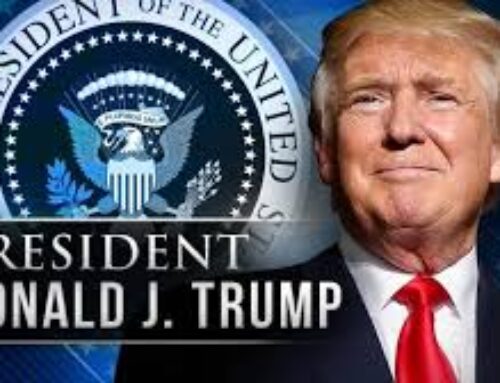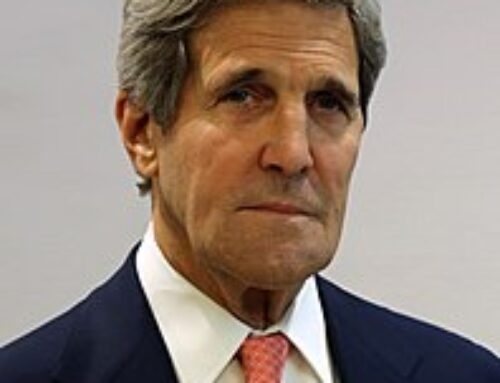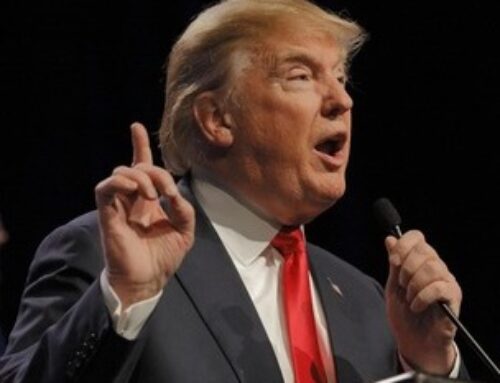
The answer to the first question is that Obama is an anti-colonialist. That is, he is outraged by the way western countries such as England, France, Spain, and Portugal colonized, subjugated, and controlled the peoples of Africa, Asia, and Central and South America. Moreover, he believes the U.S. is the modern equivalent of the old colonial powers and must be diminished.
That answer was first proposed by Dinesh D’Souza in an early 2010 essay and amply supported in D’Souza’s subsequent books and films. D’Souza’s best evidence was so obvious that other analysts should have been embarrassed at having overlooked it. It lies in the testimony of Barack Obama himself, notably in his book, Dreams from My Father, in which he directly states that he embraces his father’s anti-colonialist ideas, including this one: “We need to eliminate power structures that have been built through excessive accumulation so that not only a few individuals shall control a vast magnitude of resources as is the case now [that is, at the time the elder Obama was writing].”
D’Souza linked a number of the President’s initiatives to this anti-colonialism, including expanding government’s role in banking and in the automotive, energy, and health care industries; “redistributing wealth” by making the rich paying their “fair share”; and downsizing the U.S. military. Obama chose these initiatives, D’Souza suggests, to weaken the free market capitalism that he regards as central to “American colonialism” and to reduce America’s military presence in the world.
D’Souza’s thesis is strongly supported by President Obama’s continuing habit of apologizing for America, at home and abroad, and by his (and his administration’s) refusal to use the word “terrorism” to describe incidents such as Nidal Hasan’s massacre at Ft. Hood and the ISIS-style beheading of a woman in Oklahoma. The President is clearly more comfortable seeing America as oppressor than as victim.
The second question—why so many Americans have supported the changes—is somewhat more complex. Although many Americans believe the government has chosen some overseas adventures unwisely, relatively few believe we are a nation of colonialists or bullies—far too few to elect, let alone re-elect, a president who harbors that view.
How, then, could so many Americans have supported President Obama’s policies?
The answer lies in an idea promoted in America for over fifty years—that we are all born wise and wonderful, and therefore, whatever foolishness and evil may exist in our lives is the fault of others, notably parents, teachers, or other authority figures.
This idea was promoted by Humanistic Psychology, especially by Carl Rogers and Abraham Maslow, who borrowed it from the influential 18th century author Jean Jacques Rousseau. (After abandoning each of his five children, Rousseau applied this idea and blamed the wealthy class for his actions.) In our time this idea has led to the emphasis on self-esteem, the blaming of all manner of problems on “dysfunctional families” rather than on the individuals themselves, and the alienation of young people from their parents and from the political and intellectual foundations of their country.
In short, blaming America for all that is wrong in the world is a natural extension of blaming our parents and teachers for all that is wrong in our lives.
Emphasizing America’s faults often leads to embracing other political systems and cultures and, in some cases, attributing to them virtues they do not possess. That explains Jane Fonda’s support of North Vietnam and other celebrities’ endorsement of Venezuela and Cuba. It also explains why today’s liberals tend to be more forgiving of the real offenses of foreign dictators, al Qaeda, and even ISIS than they are the imagined offenses of conservatives and the Tea Party.
The habit of blaming America for all that is wrong in the world also makes people more accepting of President Obama’s programs for changing the country. Though they may not share his anti-colonialism, they do share his dissatisfaction. It is worth noting that Obama, having been molded by the same cultural influence as his supporters, shares their tendency to inflate their self-esteem, blame others for their faults, and oppose America’s political and intellectual foundations. This tendency is readily observable in his behavior.
Even though the presidency will not be at stake, the November 2014 elections will be a referendum on whether the voters have had their fill of alienation and “transformation” and are ready to return to the traditional conception of America and its values.
Copyright © 2014 by Vincent Ryan Ruggiero. All rights reserved



